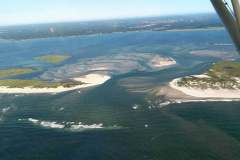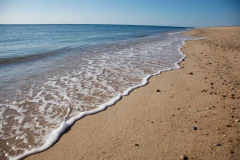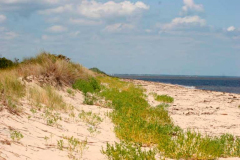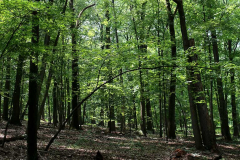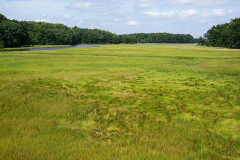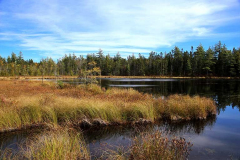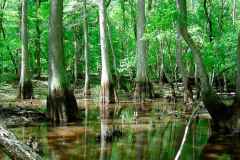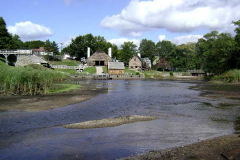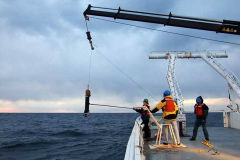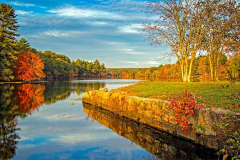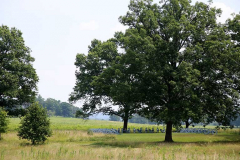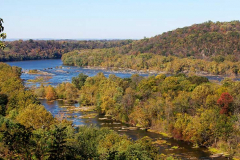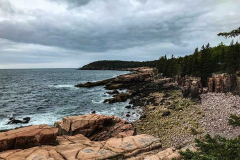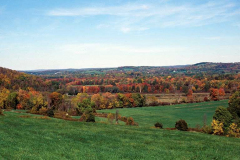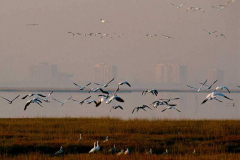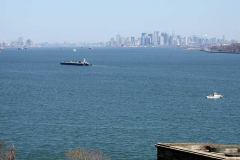Following a competitive process administered by the National CESU Council (composed of representatives from the participating federal agencies), the North Atlantic Coast CESU was established in June 1999 by cooperative agreement between agencies of the Department of the Interior (National Park Service and USGS) and the University of Rhode Island as host institution, with University of Maryland Eastern Shore as a partner academic institution. From this modest beginning the NAC-CESU has expanded considerably as federal agencies recognized the extensive wealth of technical expertise that they could draw from and non-federal research entities were eager to join and showcase their particular strengths. Nine (9) federal agencies, 35 academic institutions and other non-federal partners, and the Narragansett Indian Tribe are all cooperative partners in the NAC-CESU.
Regional Area and Study Disciplines
North Atlantic Coast CESU activities are focused primarily along the coastal region from Maine to Virginia – a region with an extraordinary diversity of ecosystems within coastal watersheds and the marine environment. A shoreline trek from north to south would encounter rocky intertidal ecosystems giving way to barrier islands and vast salt marshes. Venturing westward from the ocean’s continental shelf the ecosystem diversity includes islands, beaches and dunes, estuaries, watersheds of major river systems, freshwater lakes, ponds and wetlands, and forested habitats extending to northern portions of the Appalachians. Many of the nation’s most densely populated urban centers and numerous cultural resources (e.g., archeological sites, historic battlefields, structures, and homesteads, etc.) are dominant features of the northeast coast region.
Disciplines addressed by the North Atlantic Coast CESU are broad and reflect the region’s diversity of ecosystems and interactions with human population centers. Research and management topics include all aspects of coastal and marine science (e.g., ecology, geology, water quality, hydrology), wildlife biology, rare species protection, habitat restoration, pollution, and climate change, among others. Further, maritime heritage, history, archaeology, ethnography, and landscapes are just a few of the cultural resource disciplines addressed by cooperative studies.



